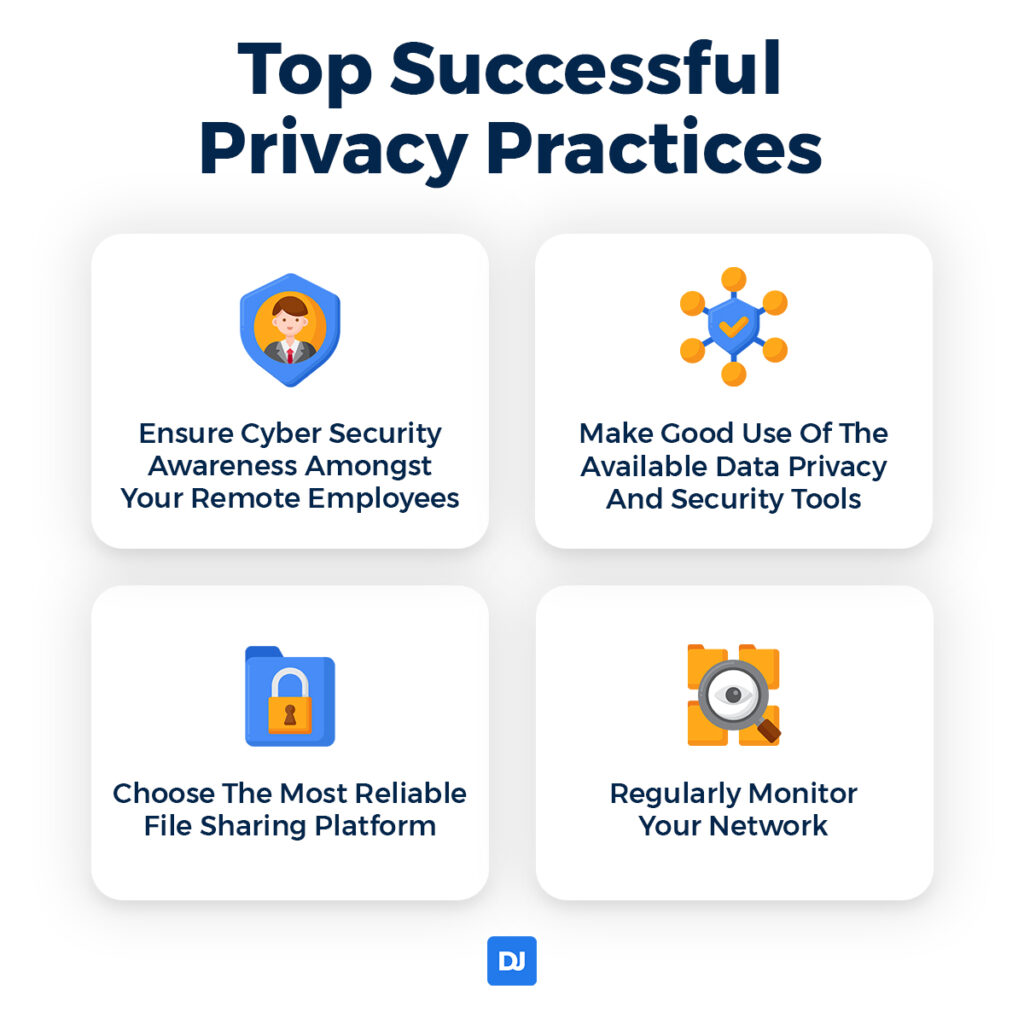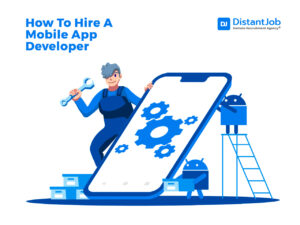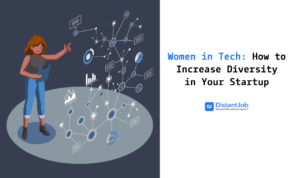Data privacy in remote hiring has become a more serious concern in the wake of the COVID-19 pandemic. As more companies embrace digital transformation and remote work, it has become imperative for employers to ensure that all their employee’s data, as they work or communicate back and forth with their colleagues, is safe.
There are also international and state-level privacy laws requiring companies to protect their employees. However, some of these laws are not all-encompassing, especially when it comes to remote work.
In this article, you will get to know about data privacy in remote hiring, including the privacy laws, the difference between data privacy and security, and the best practices companies can use to ensure safe remote hiring.
What is Data Privacy?
Data protection refers to protecting user data from those who are not supposed to access it and gives users the ability to choose who, how, and when their data should be accessed. Data privacy is more concerned about protecting personal information, including one’s location, contact information, browsing activities, financial data, etc.
Anyone hiring remotely needs to ensure employees’ data is safe and is only accessed by those supposed to access it as per the signed contract.
The main elements of data privacy include; confidentiality, integrity, and availability.
Confidentiality: This element of data privacy is associated with secrecy and encryption of user data to ensure only authorized parties access it. You must ensure that nobody can access employee data except the owner of the information.
Integrity: This refers to the certainty that data has not been tampered with during submission and storage. Employers need to put in place systems that give employees confidence that their information is safe and no one will intentionally or unintentionally tamper with it.
Availability: This element of data privacy is concerned with making sure information is availed to the authorized parties whenever they need it.
Why is Data Privacy Important?
1. Data Is A Valuable Asset
According to the Economist, data became the most valuable asset ahead of oil in 2017. Companies like Meta and Google have thrived mainly because of the data we give them. However, several companies and individual players on the web use black-hat hacking techniques to access our data without our consent.
This data is later sold to advertisers or cybercriminals who may use it to compromise other user accounts that we own on the internet. So, as an employer, you need to have powerful tools to safeguard your employees’ data from such criminals.
2. To Avoid Fines From Regulators
Ensuring data privacy is also important because it will help your company avoid the penalties of violating international and state-level data privacy laws. There are data privacy laws that govern how employers must acquire and protect the data of their employees. Violating any of these laws could lead to fines and other penalties that could be costly to your company.
3. Ensures Employee Trust
Your remote employers will trust your organization more if they are sure that their data is being handled in the best way possible. This helps protect your company’s retention, gives employees a peace of mind, hence improves their productivity in the long run
Difference Between Data Privacy and Data Security
Most of the time, people use the term data privacy to refer to data security and vice versa. However, these terms are not the same and should not be used interchangeably. But, what is the main difference?
Data privacy is about ensuring the data shared by the users is not accessed by unauthorized parties. In contrast, data security protects user data against internal, external, and malicious accidental threats.
However, some of the strategies used to ensure data privacy and security may at times be the same. For example, encrypting user data is a common strategy that provides both privacy and security of user data.
Laws and Regulations for Data Privacy: What Companies Need to Know
There are laws and regulations for data privacy that companies need to follow to avoid facing penalties when found guilty.
1. General Data Protection Regulation (GDPR)
The most commonly referred to regulation for data privacy is the EU’s General Data Protection Regulation (GDPR). This regulation ensures the data privacy of European citizens, including employees.
Any companies operating within the EU need to abide by this regulation. This regulation gives users right over their data and puts an obligation to companies to ensure all the user data they hold is safe at all times.
While United States employers do not necessarily have to adhere to the GDPR when doing business nationally, any company looking to go beyond the borders of the US should understand these guidelines.
The main aspects of GDPR include the following;
- Users have to be given explicit opt-in consent
- Users have the right to request data from companies
- Users have the right to have their data deleted whenever they wish to
2. California Consumer Privacy Act (CCPA)
Like the GDPR, the California Consumer Privacy Act (CCPA) focuses on reducing the risk of fraud for individual consumers by mandating privacy accountability.
The major aspects of this act include:
- Knowing where personal information is collected and how it is shared.
- Maintaining the ability to delete collected personal information, with minor exceptions.
- Being able to opt out of the sale of personal information.
- Having security in the non-discrimination of CCPA rights.
While this act only explicitly covers Californians, the vast consumer and job markets within California all but require any business that wants to broaden its consumer base to maintain compliance with these policies.
Ensuring a business’s compliance means building these rights into all of your data processes. Following this model ensures that you are compliant with California’s guidelines and will set your business up for success should additional legislation be passed with similar provisions.
3. Stop Hacks and Improve Electronic Data Security Act (SHILED)
Like the superhero agency that shares its acronym, the SHIELD Act was built to prevent security threats. This legislation is a new set of requirements for New York residents that took effect in March 2020. It requires that covered businesses implement and maintain safeguards to promote the integrity of private information for New York residents.
Per the SHIELD Act, the definition of private information includes:
- A username or email address paired with information securing access
- Social security number
- Driver’s license number
- Account or credit card number
- Biometric information
The focus of this legislation is on providing reasonable safeguards. Proving compliance requires showing an attempt (within reason) to provide administrative, technical, and physical safeguards to help promote the privacy of all electronic information.
Once again, whether or not you are a covered business in New York, adhering to standards like these ensures you will be able to do electronic business and hire remote employees without pause. In turn, you can protect your company from potential issues should similar legislation pass at a federal level in the future.
Top Successful Privacy Practices

Ensure Cyber Security Awareness Amongst Your Remote Employees.
Companies need to train their new employees on the basic cybersecurity practices such as ;
- Never click on suspicious links, unknown emails, or pop ups as it could lead to a phishing attack leading to loss of critical data.
- Use a reliable password manager to create unique and complex passwords to prevent cyber attacks.
- Always backup your data as per company policies that can come in handy in the event of a malware attack.
- Keep your critical software development process updated and always install the latest security updates.
- A firewall is usually the first line of defence in cybersecurity. Always install a good firewall especially while working remotely to prevent any unauthorized access.
Make Good Use Of The Available Data Privacy And Security Tools
There are several tools out there that companies can use to ensure their employee’s data is
safe at all times. From multi-factor authentication to basic firewalls, a range of cybersecurity tools help you maintain an air-tight security plan for your remote business. Some of these tools include VPNs, encryption storage solutions, and password managers.
Choose The Most Reliable File Sharing Platform
For any business with remote workers, it is almost impossible to get away without using some sort of file-sharing service. These range in price and accessibility and include such popular platforms as:
- Google Drive
- Dropbox
- OneDrive
- iCloud
Do your research before deciding on the best team file-sharing tool for your business.
Regularly Monitor Your Network
You always have to monitor your network for any suspicious activities. This will help you stop attacks before they happen or reduce the extent of the damage if the attack finally happens. There are also several network monitoring tools that you can take advantage of to help you automatically detect any suspicious activities on your network.
Managing Data Privacy In Remote Hiring
As the number of cyber-attacks targeting people working from increases, the responsibility for organizations to ensure their employee safety becomes more urgent than ever before.
Showing both your prospective and current remote employees that their personal information matters will help you maintain the integrity of your business while encouraging a broader culture of cybersecurity awareness.
You also need to take time and learn about the regulations of the markets you are operating and hiring from. For example, if you are working within Europe, following the EU’s GDPR guidelines is necessary to avoid any privacy-related concerns.
So, before you start remote hiring, it is essential to put in place data privacy strategies to avoid facing the consequence of not taking good care of your employee data. You can start by adding to your remote team a data engineer with the right skills.
And if so, contact us! We’ve helped thousands of companies hire the best developers and build remote teams who are well-acquainted with the latest data privacy practices. Just drop us a message in the chat or write to us to set up a quick call to discuss your requirements.





